The early years of a child’s life are not just about physical growth; they are a critical period for the development of social and emotional skills, which are foundational to a child’s overall well-being and success. This formative phase, particularly the preschool years, marks a time when young children learn to interpret their own emotions, develop empathy for others, and begin to understand the complex dynamics of social interactions.
From the moment they are born, children start to communicate and engage with the world around them, gradually learning to navigate the social world. The development of social-emotional skills in young children, especially during the preschool years, is a multifaceted process involving the acquisition of various abilities, such as recognizing and expressing emotions, forming meaningful relationships, and adapting to social norms and expectations.
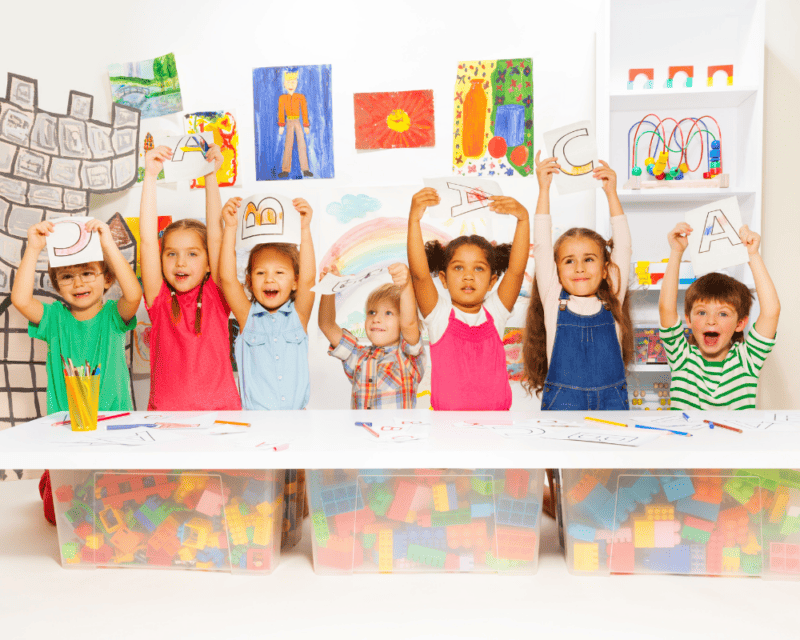
Recent research in child development underscores the importance of nurturing these skills from an early age. It has been observed that children who develop strong social-emotional skills tend to have better mental health outcomes, are more likely to succeed in school, and are better equipped to build positive relationships throughout their lives. These skills enable young children to form close relationships with family members, engage in cooperative play with peers, and express themselves in diverse social situations.
Moreover, the role of primary caregivers, family members, and early childhood educators is pivotal in shaping these competencies. Their interactions with children, the emotional support they provide, and the learning environments they create play a crucial role in the healthy social development of preschoolers. Positive experiences in these early years lay a strong foundation for the child’s ability to handle the emotional and social challenges they will face later in life.
Therefore, embracing and effectively supporting the journey of social-emotional development in young children is not just about fostering immediate well-being. It is about setting the groundwork for a lifetime of healthy relationships, emotional resilience, and social competence. As caregivers and educators, understanding and nurturing these aspects from an early age, especially focusing on preschool-age children, is paramount in contributing positively to their future.
The Preschool Years: A Pivotal Phase for Social-Emotional Flourishing
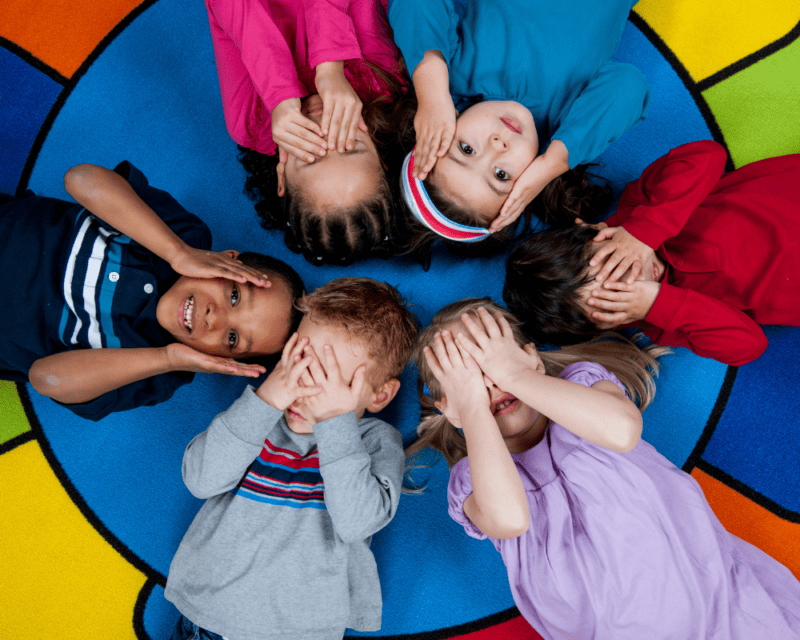
The preschool years, often spanning from around three to five years of age, are widely recognized as a critical period for the development of social-emotional skills. During this phase, young children experience rapid growth in several key areas, making early childhood education and early intervention essential components of their development.
Firstly, these years are marked by significant advances in cognitive and language skills, which are closely tied to social-emotional development. Preschool-age children begin to understand and express complex emotions, learn the nuances of social interactions, and start forming their first friendships. This is the time when children not only grasp the basics of communication but also start to navigate the social world, learning to cooperate, share, and empathize with others.
Early childhood education plays a pivotal role in this stage of development. Preschool programs and early learning environments offer unique opportunities for children to engage in social interactions and learn essential social-emotional skills. In these settings, children participate in group activities, learn to follow rules, and start understanding the perspectives of others – all crucial components of social-emotional learning.
Early intervention is another key aspect of supporting social-emotional growth during these years. Identifying and addressing social-emotional challenges early on can significantly impact a child’s ability to thrive in both academic and social settings. Early intervention strategies can include structured social skills training, emotional literacy programs, and support for developing resilience and coping mechanisms.
Furthermore, the preschool years are a time when children’s self-awareness and self-esteem begin to take shape. They start to develop a sense of self, which includes recognizing their own emotions and understanding their place in the social world. This sense of self is crucial for building confidence and a positive self-image, which are fundamental for healthy social-emotional development.
Building Blocks of Social-Emotional Development: Cultivating Emotional Intelligence and Empathy

Social-emotional development in young children is a complex and multifaceted process, pivotal in shaping their future interactions and emotional well-being. This development revolves around several key components, primarily the understanding and expression of one’s own emotions, the development of strong, healthy relationships, and the ability to recognize and respond to the feelings of others.
Understanding and Expressing Own Emotions
From a very early age, children begin to experience a range of emotions. Learning to identify and express these emotions is a crucial aspect of social-emotional development. This process begins with recognizing basic feelings such as happiness, sadness, anger, and fear, often reflected through facial expressions. Young children learn to read these expressions in others and, in turn, use their own facial expressions to communicate how they feel before they can fully articulate their emotions verbally.
The ability to express one’s own emotions effectively is directly linked to emotional regulation, a skill essential for forming positive attitudes and behaviors. As children grow, they gradually understand that expressing emotions like frustration or joy can be done in different ways. They learn to use words to describe their feelings, an essential part of developing good social skills.
Developing Strong Relationships
Another cornerstone of social-emotional development is the ability to form and maintain strong relationships. From family members to peers, the interactions children have play a crucial role in this aspect of their growth. Through these relationships, children learn about trust, empathy, cooperation, and conflict resolution. Engaging in cooperative play, for instance, is not just a fun activity but a vital learning experience where children develop an understanding of shared goals, turn-taking, and the joy of shared achievements.
Healthy relationships also provide children with a model of how to interact in social situations, fostering essential social-emotional skills like empathy, understanding, and respect for the feelings and viewpoints of others.
Recognizing the Feelings of Others
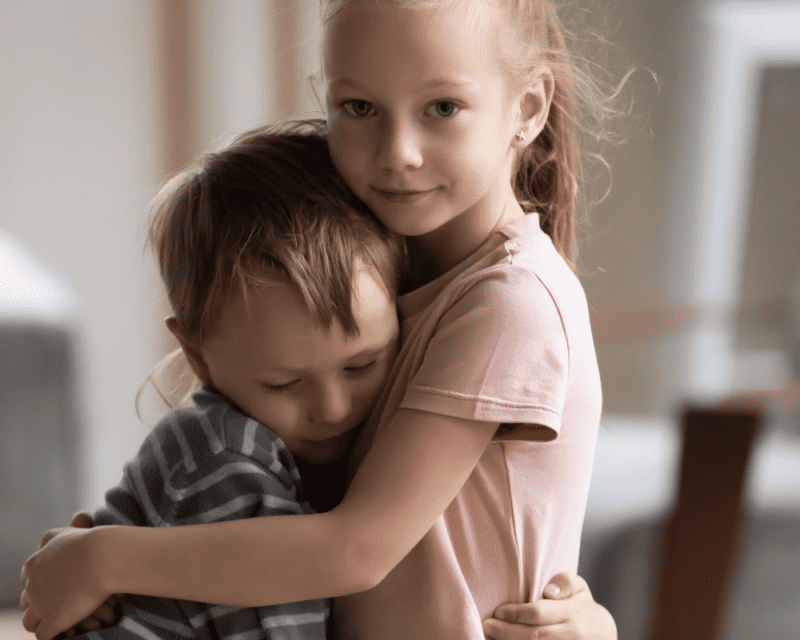
The capacity to recognize and respond appropriately to others’ emotions is a significant social-emotional milestone. This skill, often referred to as empathy, begins to develop as children notice and interpret the facial expressions and tone of voice of those around them. As they grow, they start to understand that others may have feelings different from their own, and this awareness is critical in building empathy.
Empathy plays a vital role in a child’s social development, impacting their interactions and relationships throughout life. It enables them to form meaningful connections, understand diverse perspectives, and respond compassionately in various social contexts.
The Journey Towards Social-Emotional Milestones
As children progress through the early years of life, they reach various social-emotional milestones. These milestones, like recognizing one’s own feelings, understanding the emotions of others, and navigating social relationships, are integral in shaping a child’s ability to adapt and thrive in the social world. Each milestone achieved paves the way for more complex emotional and social understanding and capabilities.
Nurturing Positive Relationships in Early Childhood
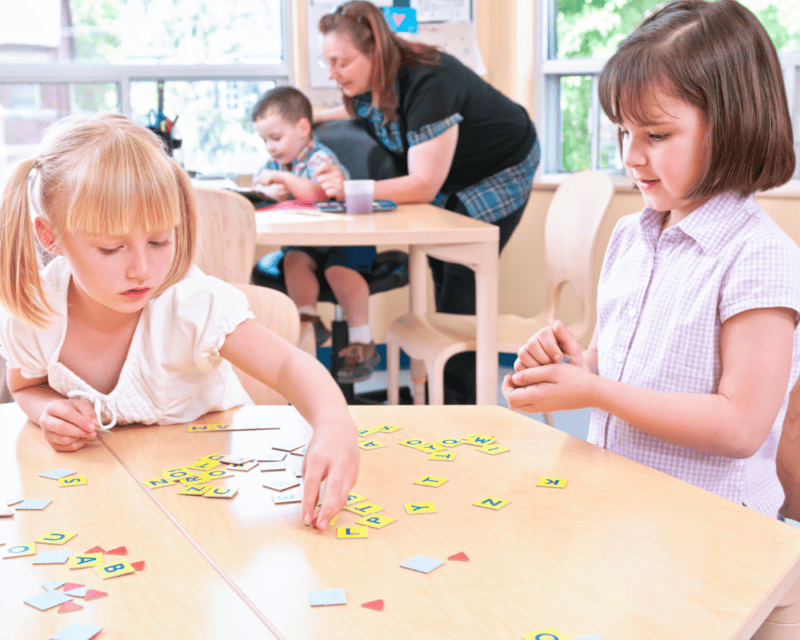
The early years of a child’s life are pivotal for establishing a foundation of positive relationships. These relationships, formed primarily with family members, primary caregivers, and preschool educators, play a crucial role in a child’s social and emotional development. The nurturing of these relationships is central to fostering a sense of security self-worth, and the development of social skills in young children.
The Central Role of Family Members in Social Development
Family members, especially parents, are typically a child’s first role models and are instrumental in shaping their early social experiences. The interactions a child has with family members lay the groundwork for their understanding of social relationships. Positive family dynamics, characterized by love, support, and effective communication, help children develop trust and emotional security. This foundation is vital for children to form healthy relationships outside the family unit.
For instance, engaging in daily activities with children, such as reading or playing, can strengthen parent-child relationships. These interactions not only provide a platform for emotional bonding but also help children learn essential social skills like sharing, empathy, and cooperation.
The Influence of Primary Caregivers on Emotional Security
Primary caregivers, whether they are parents, relatives, or daycare providers, play an important role in a child’s social development. They are often the ones who provide consistent care, ensuring the child feels safe and nurtured. The quality of care and attention given by these caregivers directly impacts the child’s ability to form secure attachments and develop a positive sense of self.
Responsive caregiving, where caregivers attentively respond to a child’s needs and emotions, is crucial. It helps in building trust and a sense of stability, which are essential for a child’s emotional and social development. For example, when caregivers acknowledge and validate a child’s feelings, it teaches them to understand and regulate their own emotions, a key aspect of social-emotional development.
The Role of Preschool Educators in Social Learning
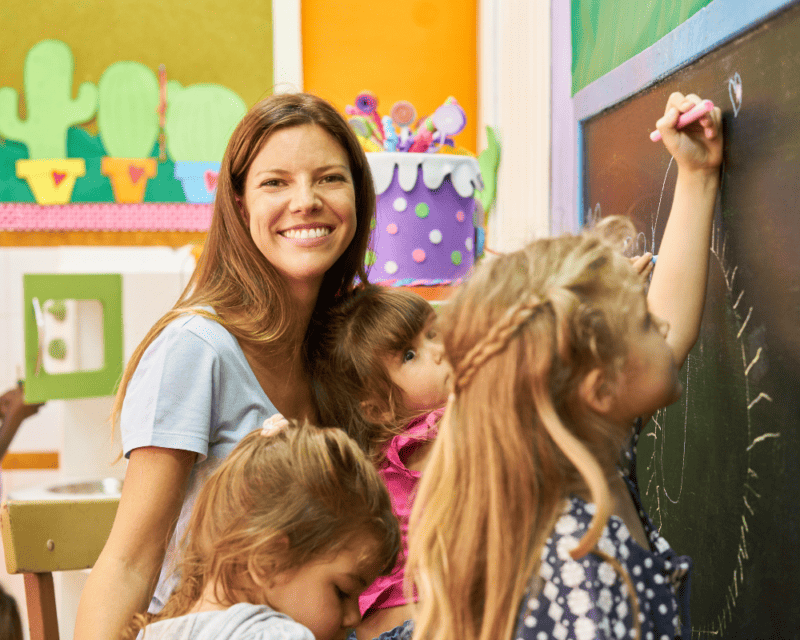
Preschool educators play a significant role in nurturing positive relationships and social skills in young children. In a preschool setting, educators not only teach basic academic skills but also guide children in learning social norms and behaviors. They create a structured yet nurturing environment where children can explore social interactions with peers.
Educators facilitate social learning through group activities, cooperative play, and guided interactions. They model positive social behaviors and provide children with opportunities to practice these behaviors. This could include encouraging sharing during playtime, teaching conflict resolution skills, or guiding children in expressing their emotions positively.
The Role of Play in Social and Emotional Learning
Play is a fundamental aspect of childhood, offering a powerful medium for social and emotional learning, especially during the early years. Through various forms of play, such as pretend play, cooperative play, and associative play, young children acquire essential social-emotional skills that lay the foundation for their future interactions and development.
Pretend Play: A Gateway to Emotional Understanding and Expression
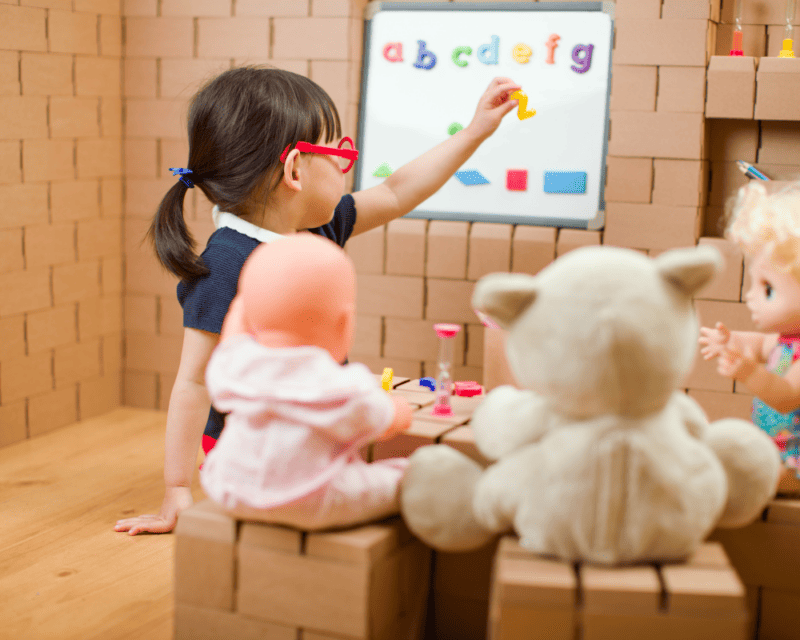
Pretend play, often characterized by role-playing and imaginative scenarios, is a vital part of social-emotional development in young children. It allows preschool kids to explore different social roles and situations, enhancing their understanding of social norms and relationships. By acting out various scenarios, children learn to navigate social interactions and develop empathy as they put themselves in others’ shoes. This type of play also offers a safe space for children to express their own feelings and understand the emotions of others, cultivating emotional literacy.
Cooperative Play: Fostering Teamwork and Social Skills
Cooperative play involves children playing together towards a common goal, requiring them to communicate, negotiate, and collaborate. This form of play is instrumental in developing strong social skills as children learn to work with peers, resolve conflicts, and build meaningful relationships. It teaches the importance of sharing, taking turns, and empathizing with others, which are essential social-emotional skills for preschool children. Cooperative play also promotes a positive attitude and helps children understand the value of teamwork and mutual support.
Associative Play: Enhancing Communication and Relationships
Associative play is characterized by children engaging in similar activities or playing with similar toys without any organized system or rules. This type of play is common among younger children and is crucial for developing communication skills and forming close relationships. Associative play allows children to interact freely with their peers, exchanging ideas and learning from one another. It lays the groundwork for healthy social development and helps children learn to navigate social situations effectively.
The Role of Peer Relationships in Play
Peer relationships play a significant role in a child’s social-emotional learning during play. Through interactions with peers, children learn to understand and manage their own emotions, develop empathy, and build strong social relationships. These relationships are crucial for a child’s overall development and well-being, as they provide opportunities for children to practice social-emotional skills in real-life contexts. Positive peer relationships also contribute to a child’s sense of self and help them form a healthy social identity.
Emotional Regulation: Guiding Young Children in Managing Feelings and Behaviors
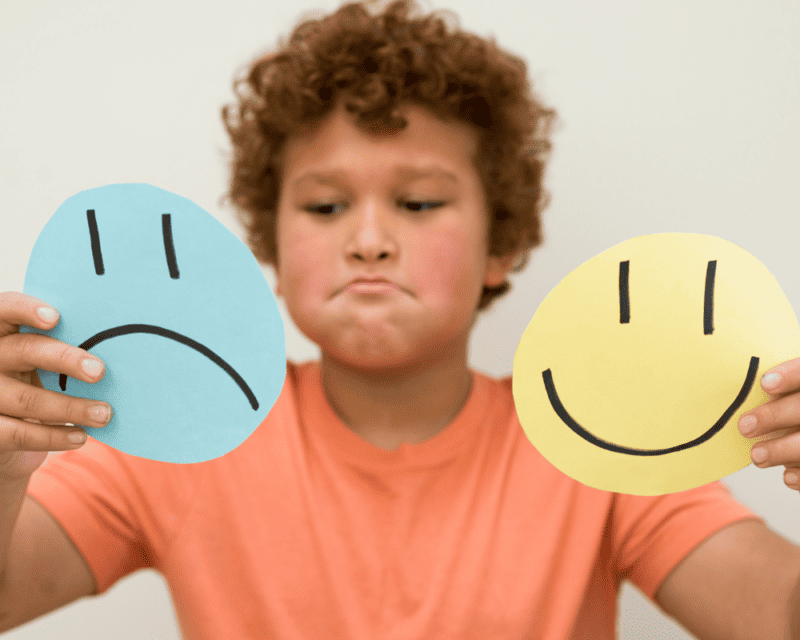
Emotional regulation is a crucial aspect of a child’s development, playing an important role in how young children, particularly those in their early years, navigate social situations and understand their own feelings. This section of the article will focus on strategies to help young children, including preschoolers and younger children, develop the skills needed for effective emotional regulation.
Understanding and Expressing Own Emotions
– Young children often experience intense emotions but may lack the language skills to express them. Teaching children to recognize and name their own emotions is a key step in emotional regulation.
– Activities like using facial expressions to convey feelings or discussing the emotions of characters in storybooks can be a great way to help children understand and articulate their own feelings.
– As children grow, they start to understand the social norms that govern their social world. This includes learning the importance of positive ways to interact with family members, friends, and educators.
– Role-playing games and pretend play can be excellent methods for teaching children about social norms, empathy, and understanding the feelings of others.
Dealing with Temper Tantrums and Emotional Outbursts
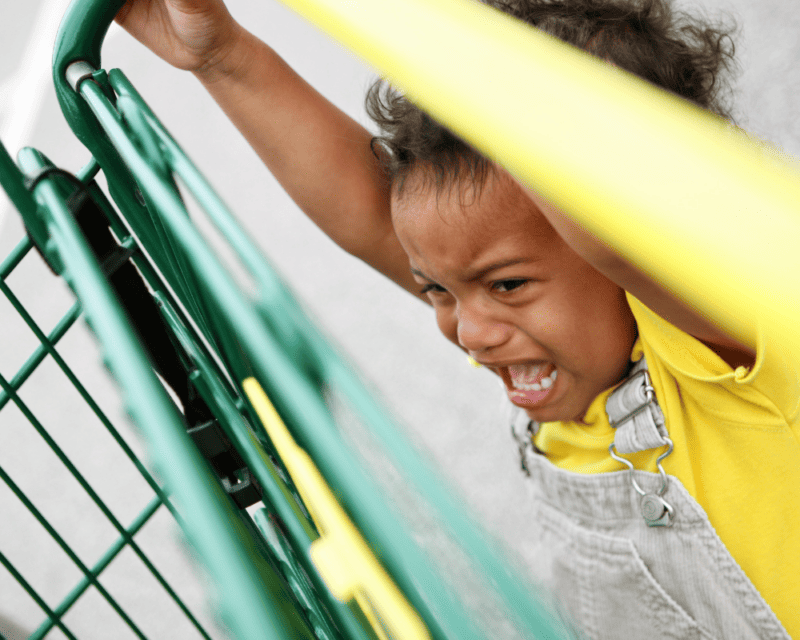
– Temper tantrums are a common part of child development, particularly in the early years of life. It’s essential for caregivers and parents to approach tantrums with a positive attitude, helping the child to calm down and understand their emotions.
– Strategies like time-in (sitting with the child and talking through emotions), deep breathing exercises, and identifying triggers can be effective in managing tantrums.
Developing Emotional Literacy and Communication Skills
– Emotional literacy is the ability to identify, understand, and respond to emotions in oneself and others. This skill is fundamental in developing healthy relationships and effective communication skills.
– Engaging in daily activities and routines that encourage children to talk about their feelings and listening attentively to them fosters emotional literacy and strong social skills.
Encouraging Independence in Emotional Regulation
– As children approach preschool age, encouraging independence in managing emotions becomes crucial. This includes helping them to develop strategies to cope with negative emotions and build resilience.
– Teaching children conflict resolution skills and how to set and achieve common goals can be beneficial in this regard.
The Role of Primary Caregivers and Early Childhood Educators
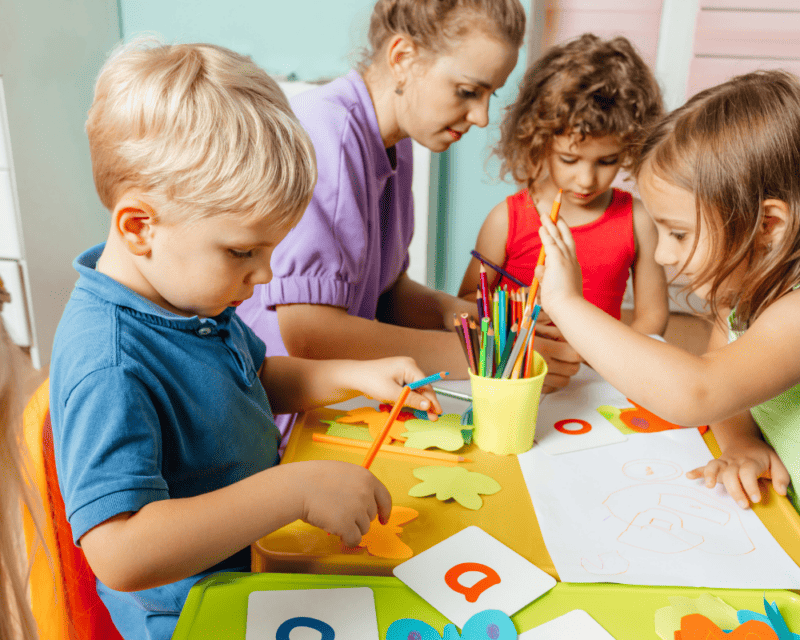
– Primary caregivers and early childhood educators play an important role in modeling positive emotional regulation. They can create a supportive and nurturing environment that allows children to feel safe expressing their emotions.
– Regular discussions about emotions, both their own and the child’s, can help build a meaningful relationship and a sense of self in the child.
Incorporating these strategies into the everyday experiences of young children not only aids in their emotional development but also lays the foundation for healthy mental health and social-emotional skills that will benefit them throughout their lives. By understanding and practicing emotional regulation, children learn to navigate their social-emotional domains more effectively, setting the stage for success in various stages of social development, from preschool to high school and beyond.
Language and Communication: Essential Pillars of Early Childhood Social Development
Language and communication are foundational elements in the social-emotional development of young children, particularly during the formative preschool years. The development of language skills and communication abilities plays an important role in how children interact with their peers, family members, and educators, shaping their social world and influencing their mental health and overall well-being.
The Interplay of Language Skills and Social Interactions
From a very early age, children begin to acquire language skills that are crucial for engaging in social interactions. These skills include not only the ability to speak and understand words but also the competence to interpret tone of voice, facial expressions, and body language. As young children learn to articulate their thoughts and feelings, they also learn to understand and respond to the communications of others. This exchange is vital in forming meaningful relationships, navigating social situations, and developing a sense of self.
Communication Skills: More Than Just Words
Effective communication involves more than the mere exchange of words. It encompasses the ability to listen, interpret, and empathize. In preschool children, the development of these skills is evident in daily activities such as cooperative play and pretend play. These activities provide children with opportunities to practice turn-taking, understand different perspectives, and resolve conflicts. As children enhance their communication skills, they become more adept at forming strong relationships and participating in group settings, such as in child care or preschool environments.
Language Development: A Gateway to Social-Emotional Skills
Language development is intrinsically linked to social-emotional skills. As children expand their vocabulary and improve their language abilities, they are better equipped to express their own emotions, understand the feelings of others, and engage in complex social behaviors. This growth is crucial for healthy development, as it impacts a child’s ability to build positive relationships, engage in associative play, and adapt to different social contexts.
Nurturing Language and Communication in Young Children
Parents, caregivers, and early childhood educators play a critical role in supporting the language and communication development of young children. By engaging in daily routines that include rich, descriptive language and by offering positive feedback and encouragement, adults can foster a learning environment conducive to language acquisition. Furthermore, activities like reading stories, singing songs, and having regular conversations can significantly enhance a child’s language skills and, consequently, their social-emotional development.
Creating Environments for Healthy Social Development
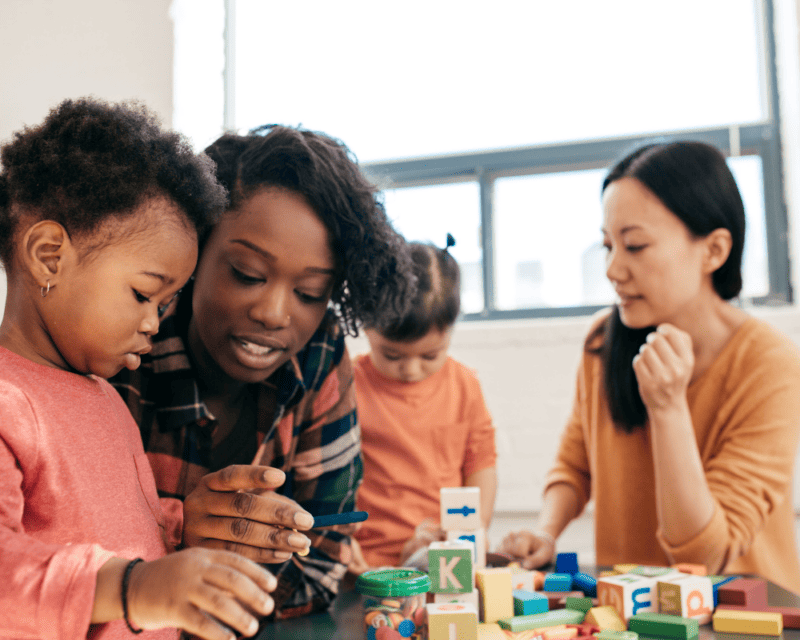
The early years of a child’s life, particularly the preschool years, are foundational for healthy social development. This phase is characterized by rapid growth in various aspects of child development, including social-emotional skills, language development, and cognitive development. A nurturing learning environment, consistent daily routines, and the guidance of early childhood educators play a pivotal role in shaping these developmental aspects.
Nurturing Learning Environment: A Foundation for Growth
A well-designed learning environment acts as a catalyst for the social development of preschoolers. This environment should be rich in opportunities for young children to engage in social interactions, explore new things, and participate in a variety of daily activities. It should be structured to encourage preschool children to express their own feelings, understand the feelings of others, and develop essential social skills. In such an environment, children learn to navigate the social world, fostering positive attitudes and healthy relationships. The learning environment extends beyond the physical space to include the emotional and social atmosphere, where children feel safe, valued, and included.
Daily Routines: Fostering Stability and Confidence
Daily routines provide a sense of security and predictability for young children, an important factor in their social and emotional well-being. These routines, from structured playtime to meal times, help children understand social norms and expectations. They also offer a framework for developing self-regulation skills and managing emotions. Through these routines, children learn to build meaningful relationships with peers, family members, and caregivers, contributing to their sense of self and belonging. Additionally, routines can include activities like cooperative play and pretend play, which are great ways for children to practice social skills and develop a positive sense of self.
The Role of Early Childhood Educators
Early childhood educators hold an important role in the social development of preschoolers. These educators are often the child’s first role models outside of family members, playing an integral part in the child’s learning and development. They are tasked with creating a supportive and responsive educational setting that caters to the diverse needs of young children. By understanding the stages of social development and employing best practices, early childhood educators can guide children through social-emotional domains, helping them navigate peer relationships, resolve conflicts, and develop strong social skills. They also play a crucial role in early intervention, identifying and addressing any developmental concerns or risk factors.
Challenges and Strategies in Social-Emotional Learning
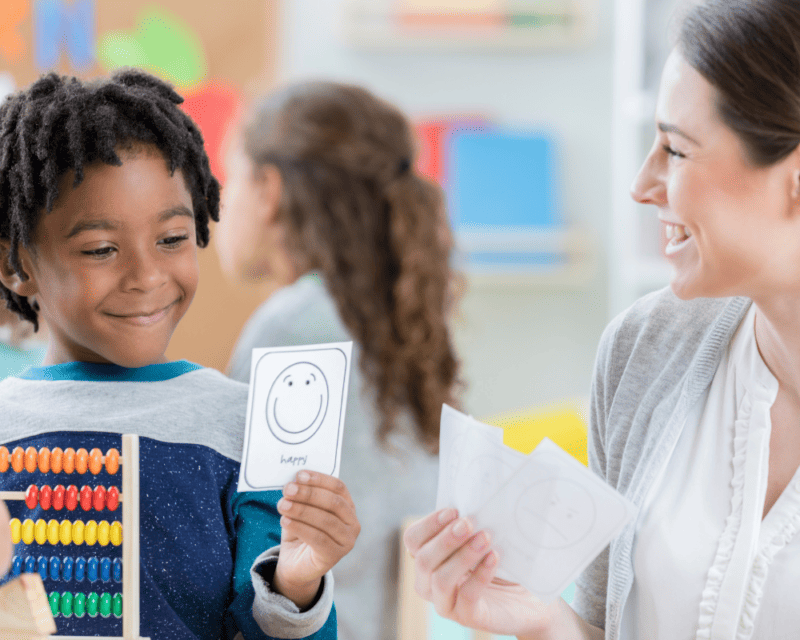
In the realm of social-emotional learning, especially among preschool children, educators and parents often encounter a variety of challenges. Addressing these effectively is crucial for fostering healthy development.
Conflict resolution is a critical skill in social-emotional learning, particularly in social situations involving preschoolers and younger children. Developing this skill helps children understand and respect different perspectives, fostering an environment of cooperation and empathy. A great way to teach conflict resolution is through role-playing and guided discussion, allowing children to explore different ways of handling disagreements. It’s essential for caregivers and early childhood educators to model positive ways of resolving conflicts, demonstrating the importance of communication and understanding.
Understanding and Mitigating Aggressive Behavior
Aggressive behavior, often seen as one of the risk factors in a child’s social development, can be addressed through various strategies. Early intervention plays an important role in identifying the root causes of such behavior, which might include frustration due to undeveloped language skills or a response to peer pressure. Interventions might involve teaching children to express their own feelings and emotions in positive ways, helping them develop a better sense of self and empathy for others. Encouraging activities that promote cooperative play and sharing can also reduce instances of aggression.
Identifying and Addressing Risk Factors
Several risk factors can impact a child’s social-emotional development. These may include family dynamics, the social context of the child’s environment, and individual temperaments. Early childhood educators and parents should work together to identify any signs that might indicate challenges in a child’s development. Regular observations and open communication are key to recognizing these signs early. Once identified, a collaborative approach involving caregivers, educators, and, if necessary, professional guidance can be effective.
Building Strong Social Skills Despite Challenges
Despite these challenges, there are numerous ways to promote healthy social development. Preschool-age children benefit immensely from environments that encourage exploration, play, and interaction. For example, engaging in daily activities like pretend play, associative play, and parallel play can significantly enhance a child’s ability to interact positively with peers. Additionally, nurturing meaningful relationships within the family and in child care settings can provide a strong foundation for developing good social skills.
The Role of the Preschool Environment
The preschool environment itself plays a crucial role in mitigating risk factors and promoting positive social-emotional development. A well-structured learning environment, supportive of daily routines and varied experiences, can greatly influence a child’s ability to develop essential social skills. Early childhood educators and caregivers should aim to create a space that not only supports physical development but also provides ample opportunities for social interaction and emotional growth.
The Lasting Impact of Early Social-Emotional Education

The journey through the early years of a child is pivotal, shaping their future in profound ways. As we delve into the conclusion of this exploration, it’s essential to underscore the long-term benefits of healthy social-emotional development, a cornerstone of early childhood education.
Mental Health and Emotional Well-Being
The foundational years of life, particularly the preschool years, play an important role in shaping a child’s mental health. Nurturing social-emotional skills in young children, such as understanding their own emotions and those of others, fosters a positive attitude and resilience. Recent research indicates that early social-emotional education significantly contributes to a child’s ability to manage stress and peer pressure, laying the groundwork for robust mental health and well-being. This early investment in a child’s emotional literacy and the development of social skills equip them to navigate the social world with confidence, reducing the risk factors associated with mental health challenges.
Cognitive Development and Learning Skills
The intertwining of social-emotional development with cognitive growth cannot be overstated. Early childhood educators play a crucial role in this process, facilitating learning environments that encourage curiosity, exploration, and the acquisition of new things. Through daily activities and routines, children learn to process information, solve problems, and engage in critical thinking. The development of these essential social skills and cognitive abilities is often ignited by interactive play, such as pretend play and associative play, which stimulate both the social-emotional domains and cognitive faculties.
Building a Foundation for Future Relationships
The early years are also a critical period for forming strong social skills that pave the way for meaningful relationships throughout life. From fostering positive relationships with family members to developing close relationships with peers, early social-emotional education helps children establish a healthy sense of self and navigate their social context. This foundational phase, rich in everyday experiences, is vital for children to learn empathy, cooperation, and conflict resolution – skills integral to forming intimate relationships and strong social networks in later life.
Physical Development and Overall Well-being
Physical development, too, is closely linked with social-emotional growth. Engaging in daily activities that promote social interactions and physical play contributes to a child’s physical development and overall healthy development. The positive impact of a balanced approach to social-emotional learning extends beyond just mental and emotional health; it also encompasses physical health, as active play and social engagement are crucial for a child’s physical well-being.
Preparing for the Social Dynamics of Schooling
As children transition from preschool to primary education, the social-emotional skills they have acquired play an important part in their adaptation to the new environment. The ability to understand and manage their own feelings, engage in cooperative play, and navigate the various social situations they encounter significantly influences their success in school settings. Early childhood educators and family members serve as the child’s first role models in this journey, setting the stage for a smooth transition into the social dynamics of schooling. In essence, the early years of a child’s life are not just about learning shapes and colors, but about laying a foundational framework for healthy social-emotional development. This development plays a crucial role in shaping a child’s personality, mental health, cognitive abilities, and capacity to build strong, healthy relationships. It’s a journey that starts from a very early age and requires the collective efforts of caregivers, educators, and family members to ensure every child has the opportunity to thrive in all aspects of life.

